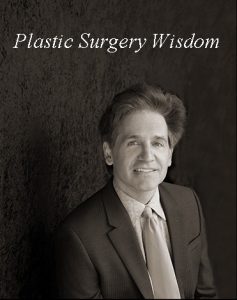
While some can today circumvent the traditional process of becoming an expert by using marketing and the internet to become a self-proclaimed one, education and training is recognized as being key parts of earning that moniker. Knowledge alone, however, is not enough to make someone an expert. It is a good start and one can not become an expert without it, but the key factor that tips the balance to being an expert in any field is experience.
Experience always comes with age and the repetitive nature of doing a certain task. What experience ultimately provides is judgment…knowing when to apply one’s skills and then how to do it both efficiently and effectively. As the old adage goes…‘good judgement is learned by initially making a lot of bad judgments’. In plastic surgery this means that one has generally had and seen most complications of any operation or in the treatment of any particular problem.
While many patients think they want a plastic surgeon who has had few complications or problems, that may only mean they have done too few operations.
‘An Expert In Plastic Surgery Means That Enough Operations Have Been Done to Have Encountered Most, If Not All, Possible Complications’
Dr. Barry Eppley
Indianapolis, Indiana


